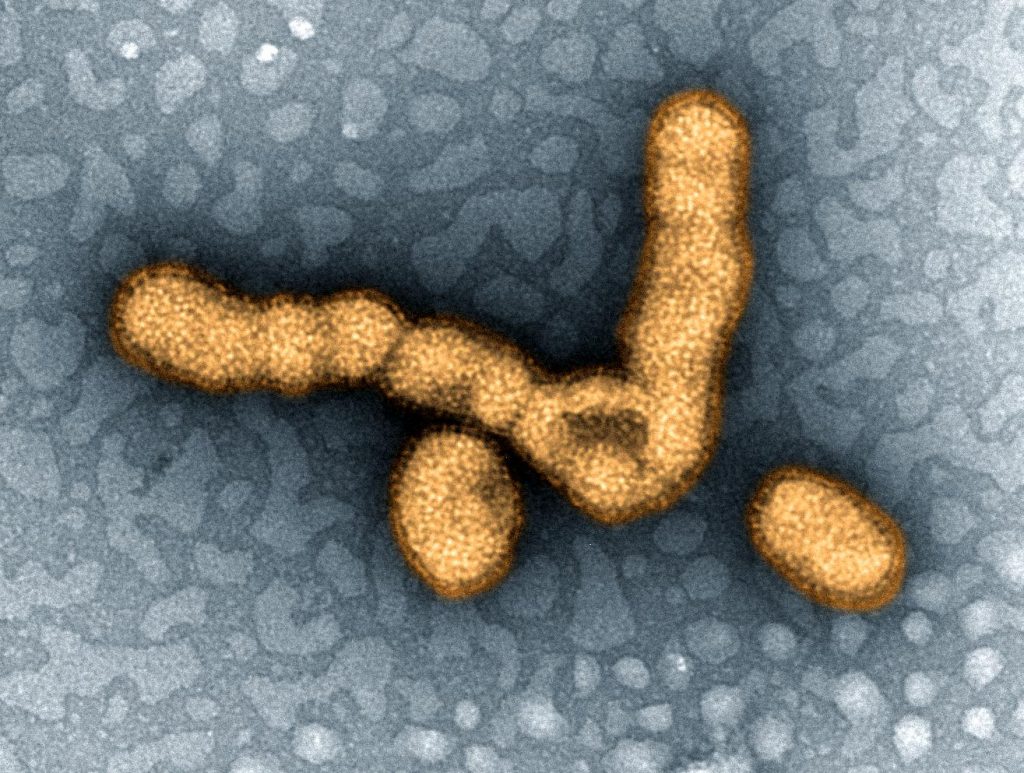Natural Products Genomics
Screening of bioresources in order to identify new antiviral substances for the treatment of influenza infections
H1N1-Influenza-Virus © CDC-wikimedia commons
Institution: Fraunhofer-Institut für Molekularbiologie und Angewandte Oekologie IME
TBG project summary
Influenza viruses of genera A and B usually cause uncomplicated febrile upper respiratory tract infections with respiratory symptoms in healthy individuals. In the case of severe courses, however, complications can occur, such as the development of primary influenza pneumonia or secondary bacterial infection, which can lead to the death of the patient.
In Germany, two classes of drugs, M2 ion channel blockers and neuraminidase inhibitors, are approved for the treatment of influenza. However, the great genetic flexibility of the viruses means that there is a risk of rapid development of resistance. For example, some subtypes have already developed complete resistance to M2 ion channel blockers. Numerous resistances have also been described against neuraminidase inhibitors. Therefore, novel agents for the treatment of influenza infections are urgently needed.
The primary goal of the project is to identify novel drug compounds for the treatment of influenza across subtypes.

Colorized transmission electron micrograph showing H1N1 influenza virus particles. © NIAID
TBG group members
- Dr. Kornelia Hardes
- Dr. Centurión Carrera, Alejandra
(associated PostDoc)
PUBLICATIONS
Bestle D, Heindl MR, Limburg H, Van Lam van T, Pilgram O, Moulton H, Stein DA, Hardes K, Eickmann M, Dolnik O, Rohde C, Klenk HD, Garten W, Steinmetzer T, Böttcher-Friebertshäuser E(2020) TMPRSS2 and furin are both essential for proteolytic activation of SARS-CoV-2 in human airway cells. Life Science Alliance, 3 (9) e202000786
Clear the stage for our young researchers! They are PIs at LOEWE-TBG and head their own junior research groups: Dr. Kornelia Hardes (Fraunhofer IME) investigates infectious diseases and Dr. Antje Steinbrink (JLU Gießen) studies native and invasive mosquitoes. In our short video they introduce themselves and give insights into their labs.